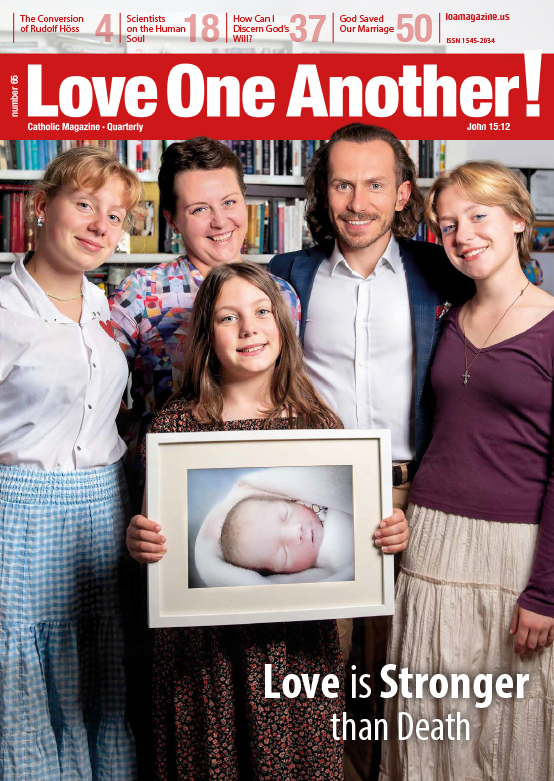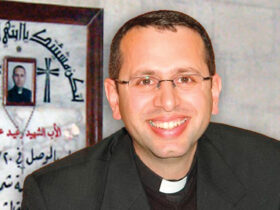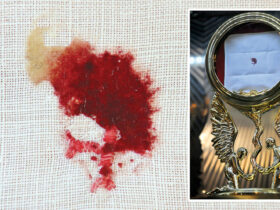Four Conditions for Repentance of Sins

For Saints Padre Pio and Leopold Mandici it was occasionally necessary to employ “shock therapy” to awaken a sense of repentance in the faithful, since both these great confessors of the 20th century knew how important repentance for sins is.
For a person who was taking sin too lightly by failing to express sufficient remorse for evil committed, the most frequent spiritual jolt that these Capuchin fathers gave was a harsh, unmistakable word, or in extreme situations the withholding of absolution. Fr. Robert Krawiec, OFMCap recounted the following anecdote from the life of Padre Pio: “A certain man had a reputation for being a good Catholic. He was admired and respected by everyone who knew him. But, in fact, he lived in sin. He neglected his wife, and afterwards, in his loneliness, he compensated by having a relationship with another woman. One time he went to confession to Padre Pio. Trying to justify himself, he started to talk about a spiritual crisis. He didn’t realize that he was in the presence of an extraordinary confessor. Padre Pio suddenly stood up and shouted: ‘What spiritual crisis? You’re betraying your wife and God is very angry with you! Get out of here!’” Concerning penitents, who were led to Pietrelcina out of simple curiosity or the wish to get a glimpse of the extraordinary stigmatic and had not prepared themselves responsibly for the sacrament of reconciliation, many of them also left the screen of the confessional without absolution. What is interesting, however, is that the persons to whom Padre Pio refused absolution returned to confession later, aware of the magnitude of the evil they had perpetrated, and by now had resolved to get their lives off to a new start.
Fr. Leopold Mandić, who was from a Croatian family but served in Padua, also required from his penitents a solid penitence for their sins and a powerful inclination to reform. One of the witnesses to the process for Fr. Mandić’s canonization recounted this story: “A certain person told me that during confession with Fr. Mandić, after recognizing his sins the priest stood up and wanted to chase him out of the confessional without absolution. He said, ‘Please leave.’ The penitent resisted, but the priest repeated the same words. However, when the man began to cry and fell to the ground saying that he regretted his sins and was ready to do anything not to fall into these sins again, Fr. Leopold helped him up and embraced him, telling him ‘Now you are my brother,’ and granted him absolution.”
What is Contrition?
Not every emotional discomfort felt towards evils committed qualifies as contrition in the truest sense. The Catechism of the Catholic Church (CCC) teaches us about this, defining contrition according to the Counsel of Trent as “spiritual pain and a coming to hate the sins committed, with a resolve not to repeat the sin in the future.” (CCC 1451) What conditions must be fulfilled in order to be able to claim true contrition? We can find an answer to this question in the writings of another great confessor, St. Jean Marie Vianney. In a booklet titled Concerning Contrition and Mercy the Curé d’Ars (parish priest of Ars), as he is popularly known, gave four conditions for the attainment of suitably regretful contrition.
“First, it (the pain) should be internal, that is, it should be felt in the depths of the heart. Hence, it doesn’t come from tears. It is true that these are good and beneficial, but they aren’t essential.” In other words, an external expression of contrition does not automatically indicate that someone regrets their sins. Deep contrition may be expressed without physical signs. Such as in the case of the good thief who, even though he didn’t cry over his wasted life, regretted it, and converted genuinely at the last moment of his life, declaring his faith in Jesus, and asking Him to accept him into His kingdom. (Luke 23:39-43)
“Secondly, the pain that we should feel because of our sins should be supernatural, that is, it should be the Holy Spirit that calls it up within us, rather than being caused by natural causes.” St. Jean Marie Vianney recalled a distinction that the church makes between the so-called perfect contrition and imperfect contrition. Perfect contrition occurs when the contrition that we feel relates to God – that is, the spiritual pain brings about an awareness that through our evil thoughts, words, deeds, and carelessness, we have offended the Lord God. Hence, our awareness “arises from a love by which God is loved above all else.” (CCC 1452) So, perfect contrition is comparable to a pain that a loving person feels when he becomes aware that he has caused his beloved some affliction. Imperfect contrition, in turn, doesn’t come from love for God, but rather most often from fear of punishment, be it eternal, that is, hell; or temporal, that is, the human consequences of our actions. This is the situation, for example, when someone who was caught stealing from his neighbor, regrets his action, not because he harmed his neighbor, but because he is afraid that if he is caught he himself will go to prison. This contrition may lead to a change of heart, and lead to a sacramental confession, hence imperfect contrition is a gift from God, and an arousal from the Holy Spirit. (CCC 1453)
“Thirdly, it is necessary for the pain to be of the highest measure, that is, greatest of all, greater than what we would feel losing our parents, health, and all that we hold dearest in life.” Our Curé d’Ars explained that this suffering should be so great because it should be commensurate to the magnitude of the loss that we cause and the unhappiness that our sin drives us to. This quality of contrition derives from a certain logic: the less the value of the thing lost, the less our regret at having lost it. The loss of a watch is less significant than the loss of a car. And since sin causes us to lose the greatest happiness, that is harmony with the Lord God and access to heaven, and condemns us to the greatest unhappiness, which is hell, then contrition also should be of the highest magnitude.
“Fourth, the pain should encompass all the sins.” True contrition cannot deal only with some of the sins, but must pertain to all the sins that our consciences bring up. The saints regretted every sin, even the most minor. Padre Pio wrote: “A confessor assures me that the sins I commit are at most venial. But what does it matter that they are minor, inasmuch as they cause Jesus to cry? I tell Jesus that I don’t want to offend Him by my sins.” St. Faustina, in turn left us these thoughts in her Diary: “It is my habit to ask for forgiveness, even after the slightest transgression.” (Diary 612) “I feel within my soul a great aversion for even the smallest sin.” (Diary 1334) Her practice of going to confession frequently grew from aversion to sin and from the desire to experience God’s mercy. St. John Paul II went to confession weekly, and also before major feast days and important liturgical seasons. Even as the Archbishop of Krakow he stood in line to the confessional along with other penitents in the Franciscan church.
How to Awaken Contrition?
What, then, can we do when we are aware of having committed sins, but we don’t feel regret for the evil done? St. Jean-Marie Vianney encouraged people in such circumstances to ask the Holy Spirit for the grace of contrition. Feeling regret is, after all, a gift from God. We learn from the Lenten Liturgy about turning to God for help in arousing contrition. We sing “Bitter regret, be with us, pierce our hearts … Strike, Jesus, without delay, the hard rocks of our hearts.”
And even though the service of “Bitter Regrets” refers above all to consideration of the Passion and death of the Lord Jesus, it also serves (to arouse in our hearts) contrition for our sins. St. Faustina always associated her regret for her sins with the Lord’s Passion. In the Diary she noted: “I will call to mind the Passion of Jesus at each confession to arouse my heart to contrition. In so far as possible, with the grace of God, I will always practice perfect contrition. I will devote more time to this contrition.” (Diary 225) In another place she wrote: “Then I saw Jesus crucified, and He said to me, ‘It is in My Passion that you must seek light and faith.’ After the confession I meditated on Jesus’ terrible Passion, and I understood that what I was suffering was nothing compared to the Savior’s Passion, and that even the smallest imperfection was the cause of this terrible suffering. Then my soul was filled with very great contrition, and only then I sensed that I was in the sea of the unfathomable mercy of God.” (Diary 654)
Along with awareness of the suffering that the Lord Jesus endured for our sins, St. Ignatius of Loyola suggests that imagining for oneself the repulsiveness of sin, as such, can help with arousing contrition. In one of the Spiritual Exercises, the founder of the Jesuits encouraged each one of us that, after having apologized to God with deep and great anguish and tears for my own sins, as well as after conducting an examination of conscience, “weigh the gravity of my sins, and see the loathsomeness and malice that every mortal sin I have committed has in itself, even though it were not forbidden.” (The Spiritual Exercises, 57)
Ultimately, in practicing contrition, praying the act of contrition also helps: “Oh, how I regret my sins, only for Your love, be merciful to me, a sinner, contrite with my whole heart.” (in other versions: “for you I forgive my neighbor.”)
No matter what method we choose to arouse contrition, the most important thing is that it should bring the desired regret for sins, which will lead to the rest of the conditions required for a good confession: examination of conscience, sincere confession, a strong resolve for correction, and making amends towards God and our neighbor. May the Lord Jesus’s words to St. Faustina be a comfort to us: “Write: I am thrice holy, and I detest the smallest sin. I cannot love a soul which is stained with sin, but when it repents, there is no limit to My generosity towards it. My mercy embraces and justifies it. With My mercy I pursue sinners along all their paths, and My heart rejoices when they return to Me. I forget the bitterness with which they fed My heart, and rejoice at their return.” (Diary 1728)
Do you like the content published on our website?
Support us!





